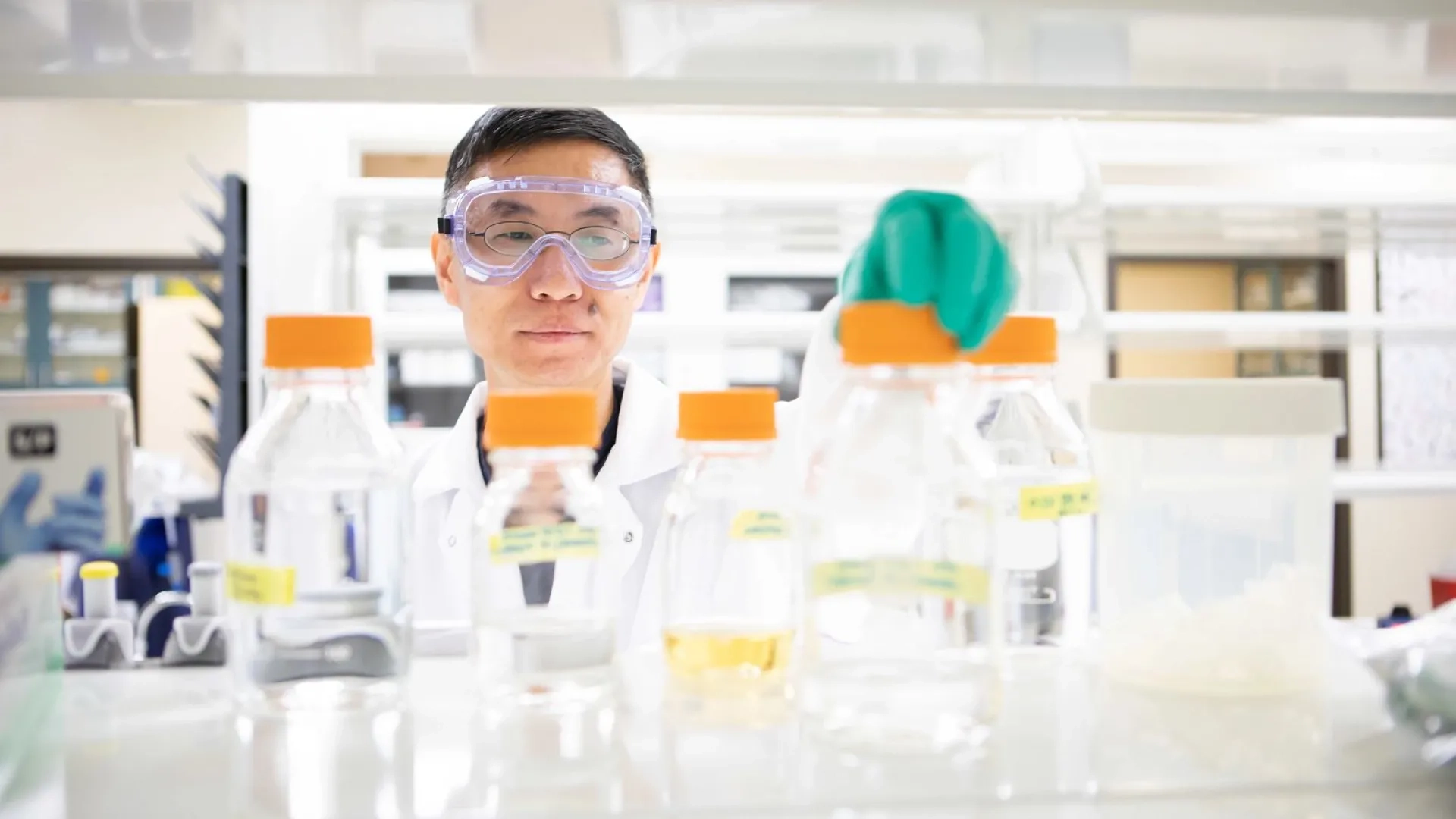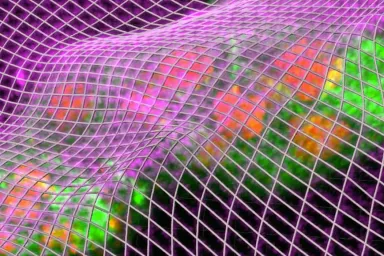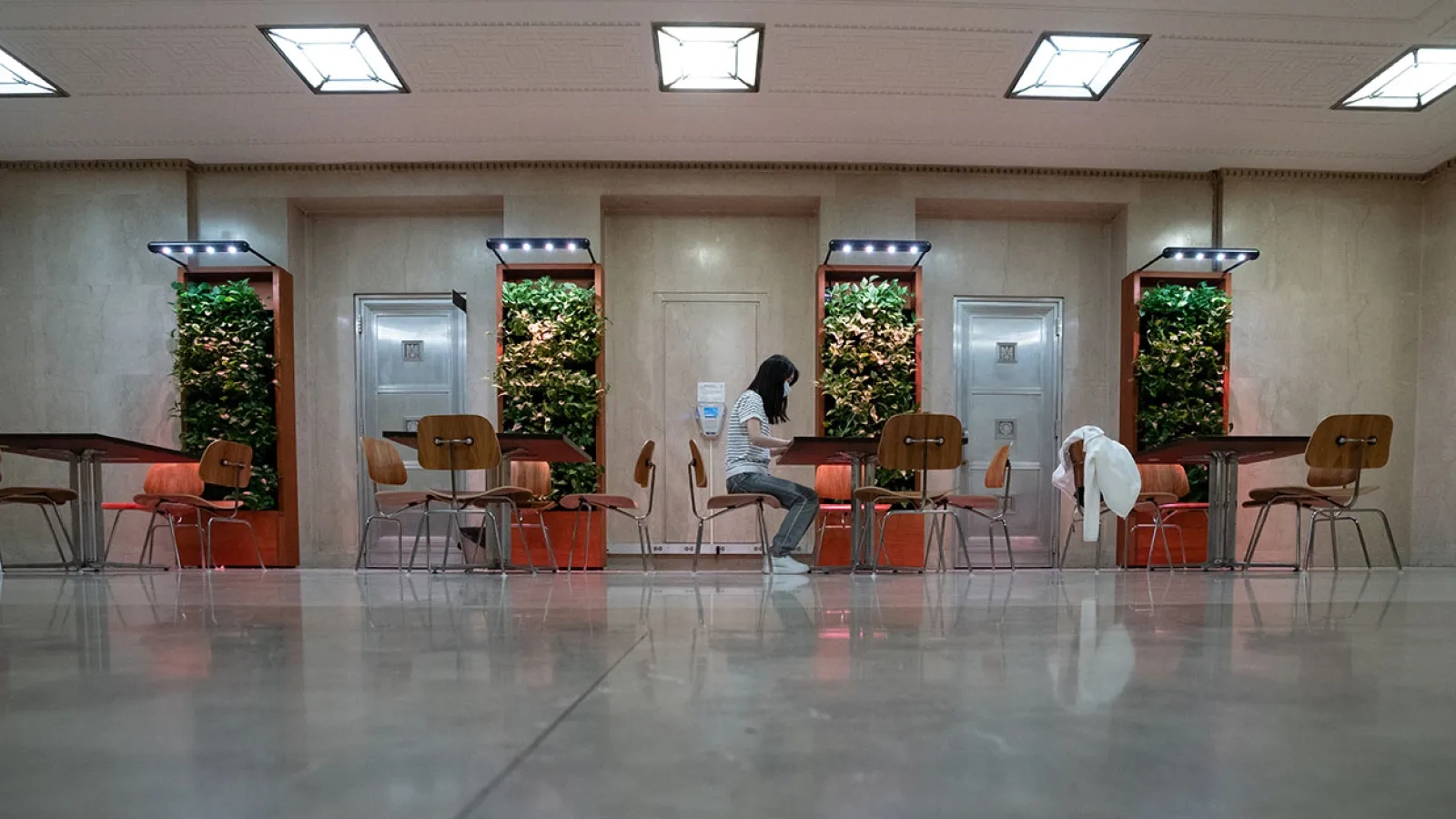
Research at Mellon College of Science
The future of science is audacious and creative — where bold ideas meet real-world impact. By bringing together Carnegie Mellon University’s expertise in foundational science, artificial intelligence, engineering and data analytics, Mellon College of Science (MCS) researchers are asking and answering critical questions for the next generation of discovery.
How We Drive Progress
Science is in the midst of a rapid transformation — one that MCS and CMU are uniquely positioned to lead with our commitment to limitless collaboration and complementary strengths. That energy is being used to codebreak cancer, develop new defenses against climate change and delve into the mysteries of the universe.
Research Areas
Areas of research at MCS push beyond disciplines to explore the outermost reaches of human understanding. That’s why CMU’s research expertise is in such high demand in the following areas:
Mellon College of Science Centers and Institutes
MCS centers and institutions define what interdisciplinary, forward-thinking research looks like today. These centers bring the best minds in science together to create new knowledge that improves our everyday lives.

Center for Advanced Biological Imaging Solutions (CABIS)
Supporting biomedical researchers with new instruments developed by expert biologists, chemists and imaging scientists.

Center for Atmospheric Particle Studies (CAPS)
Actively influencing environmental policy by advancing understandings of particulate matter in the atmosphere.

Center for Computational Finance
Advancing research in quantitative methods for finance with faculty from across Carnegie Mellon University.

Center for Macromolecular Engineering
Developing and improving materials through advanced Atom Transfer Radical Polymerization, led by the Matyjaszewski Polymer Group.

Center for Molecular Analysis
Offering high-performance analytical instrumentation, assistance and training for scientists and students at CMU and beyond.

Center for Nonlinear Analysis
Creating research and educational opportunities at the intersection of mathematics, physical sciences and engineering.

Center for Nucleic Acids Science and Technology (CNAST)
Discovering new technologies and understandings of the fundamental biology of nucleic acids through research, education and outreach.

Institute for Green Science
Advancing entrepreneurial dimensions of chemical sustainability and green oxidation catalysis with sustainability-oriented scholars.

McWilliams Center for Cosmology & Astrophysics
Unraveling the mysteries of the universe through astrophysics, particle physics, computer science, statistics and other fields.

Neuroscience Institute
Transforming the state of brain science by conducting multidisciplinary work with faculty and students across CMU.

Pittsburgh Supercomputing Center
Offering advanced high performance computing, data storage and communications for university, government and industry researchers nationwide.

Advancing AI Science
MCS research is driving breakthroughs with AI and on AI itself to redefine the way science is done. Students gain early access to next-generation tools for a head start in shaping the future. Find out how.
Latest in MCS Research

How One Mind Can Shape Research
In her first semester as a doctoral student, Nicole Auvil was challenged by Chemistry Research Professor and Director for the Center for Molecular Analysis Mark Bier to create ultrasharp tungsten needles for use in mass spectrometry. Despite the uncertainty of success, she adapted electrochemical etching methods to produce needles as small as 8 nm — over a thousand times sharper than commercial ones — by her second semester.
Auvil emphasized the broad impact of mass spectrometry, noting its role in testing everyday products.
"People don't realize that so many items they use on a daily basis — medications, personal care products, food and beverages, even the air we breathe — have been tested by a mass spectrometer at some point or another," Auvil said. "Bier encourages our lab to innovate and think outside of the box. Once you hit a certain technical understanding, research is just as much art and creativity as it is science."

Shape the Next Big Discovery
Join the teams leading world-changing research and become part of the next generation of scientific discovery.




